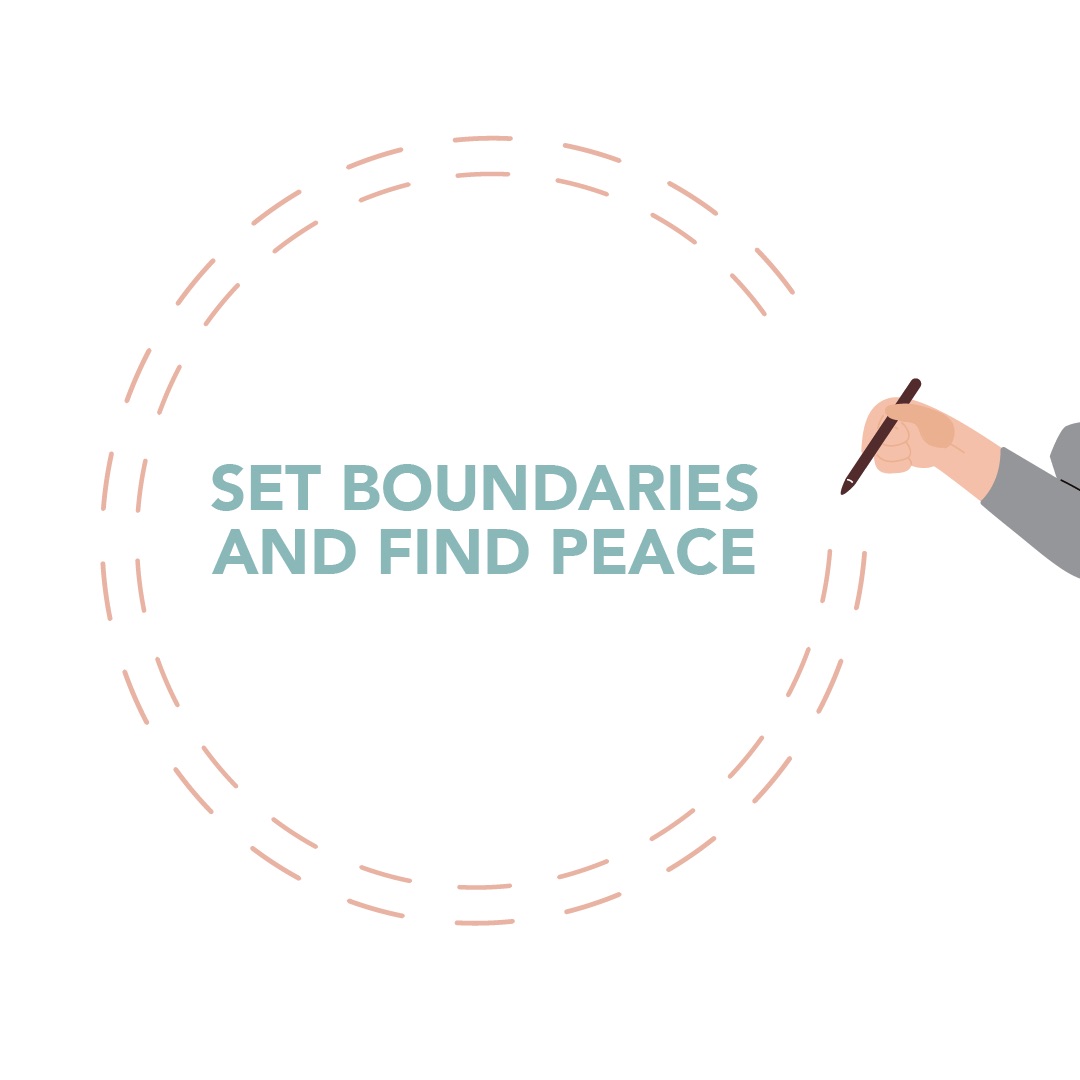
Set Boundaries and Find Peace

What comes to your mind when you first think of boundaries?
Maybe you would think of the boundaries between the countries, or the defining line of a shape.
You’re actually right, because boundaries show where one thing ends and another begins. However, they could mean much more than that.
So, what are boundaries in psychology?
A boundary is an imaginary line we create to separate our physical space, emotions and needs from others. Boundaries are a part of self-care. They are normal, healthy and essential for our mental and physical wellbeing.
They must be applied to every relationship you have in your life, whether with your family, partner, colleagues or anyone else.
But are boundaries really that important?
Every relationship needs boundaries and limits because by setting them you tell the other person how to treat you.
Therefore, you need to set healthy boundaries in order to establish your own personality and identity.
And remember:
“A lack of boundaries invites a lack of respect”.
So if you don’t set limits about how you accept people to treat you, they may disrespect you and even take advantage of you. Setting boundaries is a way of caring for yourself.
Some people may completely understand your boundaries and respect them while others may keep neglecting and violating them.
So how do you spot unhealthy boundaries?
- You’re too shy to express your needs
- You’re always dependent on others
- You think you need another person to be happy
- You can’t say No to the point where maybe you let someone touch you without your genuine consent
- An unhealthy boundary seeks to control you.
For example: if your partner says: “Stop talking to other guys/girls because you might cheat or I get extremely jealous”, that’s an unhealthy boundary and a sign that your partner may have trust issues and is trying to control your life.
No one needs need these negative vibes and toxic relationships in their life. Sometimes, we become aware of the importance of setting boundaries especially to certain people but we refrain from doing this.
So, what is the main reason that stops us from taking action?
"Fear."
We are afraid of hurting people. Afraid of their reaction, judgement and rejection. Therefore, we accept the way we’re being treated.
Now, let’s put fear aside and focus on improving our wellbeing.
So, how do you set healthy boundaries?
- Know your rights
It’s important to understand and respect your rights and remember that taking care of yourself should be an absolute priority.
- Say No
Keep in mind that you’re allowed to say no without feeling guilty. Respect yourself enough to say no when you feel like it. You don’t have to accept everything people tell you to do.
- Communicate
Tell people what you feel and let them know when they violate your boundaries.
- Trust your guts
You will automatically sense when you’re being taken advantage of. So trust your intuition and feelings and act accordingly.
- Define your values
Focus on 3 to 5 values and protect them at all costs.
- Get support
Don’t be scared to ask for help. Any advice or assistance might help you set the boundaries you deserve.
- Remember that setting healthy boundaries does not happen overnight. Trust yourself and be patient.
Boundaries can be set for different things, such as your personal stuff and possessions, your body, your thoughts, your religion, your time and your energy.
And they have many benefits since they allow you to focus on yourself and improve your confidence and self-esteem.
You might be wondering, should I create flexible or rigid boundaries?
They should be flexible and not rigid. Respect them but revisit and reassess them frequently. You have the right to change your mind about what your boundaries are at any time.
And if you ever feel confused repeat this phrase: “Setting boundaries is a way of caring for myself. It doesn’t make me mean, selfish or uncaring just because I don’t do things your way”.

